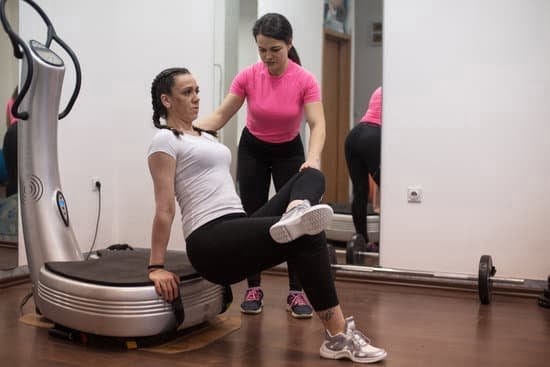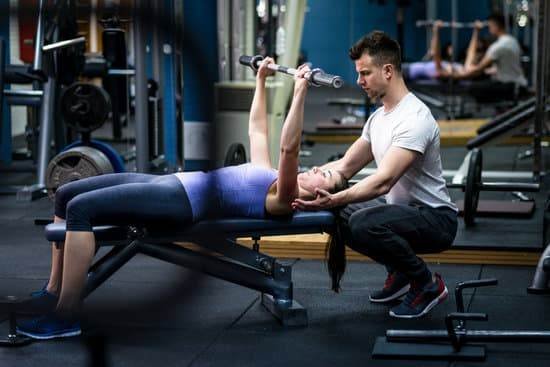Introduction
Finding the right personal trainer can be a daunting task. First, consider your fitness goals. What are you trying to achieve? Are you looking to gain muscle, lose weight or improve your overall health and wellbeing? Once you determine this goal, you can begin searching for someone who specializes in it. After all, if you want to gain muscle and your trainer focuses their practice on weight loss, they aren’t going to be the best fit for you.
Next, ask friends and family if they’ve had successful experiences with any trainers that they would recommend. It never hurts to ask around and get other people’s opinions before making a decision. You might even find reviews online of specific trainers or gyms that offer personal training services.
When approaching potential trainers for their rates and availability, be sure to ask about their qualifications as well. Make sure the person you decide to work with is certified by a valid organization such as the National Strength and Conditioning Association (NSCA) or American Council on Exercise (ACE). Also make certain that they carry proper insurance just in case an injury occurs during a session. Ask them about their experience level too; have they worked with clients of similar needs/goals in the past?
You should also think about what kind of personality characteristics matter most when looking for a personal trainer – do you like someone who’s encouraging and positive or strict and disciplined? Do clear communication styles matter more than anything else? Figure out which is most important to you so that you can find someone who will help get you real results while keeping things enjoyable too!
Finally, evaluate whether distance could affect your ability to meet with a given personal trainer regularly—distance may play a role in terms of convenience or cost. If possible schedule an in-person meeting with each potential trainer so that both of you can discuss any questions or clarifications that arise on either side during the selection process. Once these details are covered its time to make the right decision!
Advantages of Having a Personal Trainer
Having a personal trainer can be a great way to reach your fitness goals. They have the expertise and experience to create a customized workout plan based on your individual needs, goals, and abilities. A personal trainer can provide motivation and guidance to help you stay on track with your fitness routine and achieve the results you want in a safe and effective manner. Additionally, they can offer guidance and advice to modify exercises if needed, helping prevent injury while continuing to make progress towards your goals. They can also hold you accountable for hitting certain milestones, offering tips and tricks to get over any roadblocks or plateaus that stand in your way. Ultimately, having a personal trainer gives you access to high-level knowledge and support that makes it easier to navigate the complexities of achieving optimal health.
Qualifications to Look for in a Personal Trainer
When looking for a personal trainer, it’s important to look at their qualifications. The first thing you should consider is their professional credentials. Personal trainers need to have a certification and license in order to practice. Certified Personal Trainers (PT) will have completed an accredited course within the fitness or health industry, and passed an exam that included both theoretical and practical components. Additionally, they should also be certified in First Aid and CPR as these two skills can often be life-saving if there’s ever an emergency situation when exercising.
Apart from these minimum qualifications, most trainers will offer additional training courses to continue developing their knowledge about exercise science and nutrition. These qualifications usually cover areas such asweight management, injury rehabilitation, anatomy & physiology, strength & conditioning, etc. They may also have specialties such as working with athletes or post-rehabilitation clients so this may also be something else you should consider depending on your individual needs. Lastly, a good personal trainer should always have certificate of insurance ranging from public liability to specialist fitness insurance policies so make sure you check this before committing to anything too!
Sources of Finding a Trainer
When looking for a personal trainer, there are a variety of sources you can use to your advantage. For starters, word-of-mouth is one of the most reliable sources and using people you know who have used personal trainers in the past or recommended one to them can help establish trust and connection. You could also use online resources such as review websites, Google searches and Facebook. Online reviews provide an overview of customer ratings and feedback that can help you decide if the trainer is right for you. As well, many personal training companies will have an online presence designed to feature their services and qualifications and these websites may link to different personal trainers that represent their brand. Lastly, contacting fitness centres and running clubs in your area may point you in the right direction as they often hire qualified personal trainers who have proven track records with clients.
Interviewing Potential Trainers
When interviewing potential personal trainers, there are a few essential questions that you should ask in order to find the best one for you. Start by asking about the trainer’s qualifications, such as a degree in physical education or their certifications. It is also important to discuss what style of training they specialize in, such as strength training, circuit training, kickboxing, and Pilates. Ask if they have experience working with athletes or somebody with similar goals to your own. You should also inquire about whether they use assessments or evaluations and how they formulate exercise plans or come up with workout routines- and if at any point they plan to reassess progress and make adjustments where necessary. Additionally, make sure you know exactly how long each session will last and what can be expected during that time. Finally, ask about any fees associated with the services provided and ensure that all expectations are communicated up front.
Key Criteria for Deciding on a Trainer
When deciding to hire a Personal Trainer, there are key criteria that should be considered. Firstly, you need to establish your purpose or goal. Are you looking for general fitness improvement? A designed program for an athletic competition? Assistance with an injury? Once you have identified your purpose and goals, consider the trainer’s credentials. Look into what qualifications they have obtained, such as certification from national organizations like the National Strength and Conditioning Association or the American Council on Exercise. Interview different trainers and make sure you compare their experience, approaches and methods; seek out someone who has successfully completed similar training for other clients. Ask about their style of coaching, track record and even any specializations one could provide- such as sports performance or pre/post natal requirements. Additionally, it is essential to clarify payment policies, transportation options since many trainers come directly to homes or gyms; comfort level of venues during sessions; along with health and safety information that should be discussed to ensure both parties are aware of all regulations. By following these steps and criteria when searching for a Personal Trainer one should find an experienced coach that can suit their unique needs who meets professional standards of care and respect.
Budgeting
When it comes to budgeting for a personal trainer, it is important to consider a variety of factors. First and foremost, you should determine what your budget is – how much money each month can you realistically afford? Depending on where you live and the experience level of the trainer you are seeking, expect to pay anywhere from $15-$200 an hour for a session with a personal trainer. Additionally, many personal trainers may offer discounts when signing up for multiple sessions or ongoing plans that lower the cost of training. It is also important to remember that some health insurance policies may provide coverage for fitness programs in addition to covering some of your fees associated with them. Lastly, there are many online resources that can provide potential saving options such as discounted rates with select facilities or online classes at a fraction of the normal price. With all this in mind, it is important to understand that budgeting for a personal trainer may take some time, but with research and diligence in finding the right fit for you, it can be worth it.
Strategies for Optimizing Your Training Program
Finding a great personal trainer can be a daunting task. You want someone who will make workouts fun, push you to your limits and ensure that you reach your goals. There are some simple steps you can take to help optimize your search for the right personal trainer:
1. Get Referrals: Talk to friends or family who have had a positive experience with their personal trainers and ask them for referrals. Make sure to get as much information as possible on the types of programs they offer and what results they were able to achieve with other clients.
2. Do Your Research: Once you have a list of potential trainers, scour online sites such as Yelp, Google and fitness forums for reviews from previous clients. Also research their credentials to make sure they are certified in the activities they are offering. Be sure to read up on any certifications or degrees that the instructor has acquired that relate directly to providing training services.
3. Ask Questions: Set up an initial phone or in-person consultation with each of your prospective trainers and prepare a list of questions about the training process, experience level, pricing structure and overall approach. This will give you insight into whether this particular trainer is right for your specific needs and objectives.
4. Utilize Technology: See if there is an app or portal provided by your prospective trainer which allows them to communicate with their clients directly via telephone, text messaging or email. This can be very helpful in staying connected between sessions and easily sending documents back-and-forth – like meal plans or progress reports – without having to physically meet up once again at the gym!
5. Take it For A Test Drive: After narrowing down the field of qualified candidates, many personal trainers will provide a complimentary session (or discounted first session) so that you can test out their services before committing long term financially – take advantage of this offer!
Conclusion
When it comes to reaching your fitness goals, nothing is as powerful as having the help of a professional. A personal trainer not only provides you with the guidance and educational resources you need to reach your desired level of physical fitness, they can also provide the mental motivation, support, and encouragement you may need when you are feeling unmotivated or uninspired. This is why it is important to choose a Personal Trainer that meets all of your needs and expectations. To find a Personal Trainer suited for you, use the steps outlined in this article; research different trainers in your area, compare their credentials and reviews, and ask them questions through direct communication. With the right personal trainer by your side, you can have all the tools necessary for success and reach your desired fitness goals in no time!

Passionate about providing useful information to anyone with an interest in the field of Personal Training, I strive to pass on to our readers quality information and to answer any questions about Personal Trainers, the work they do and how to become one.





